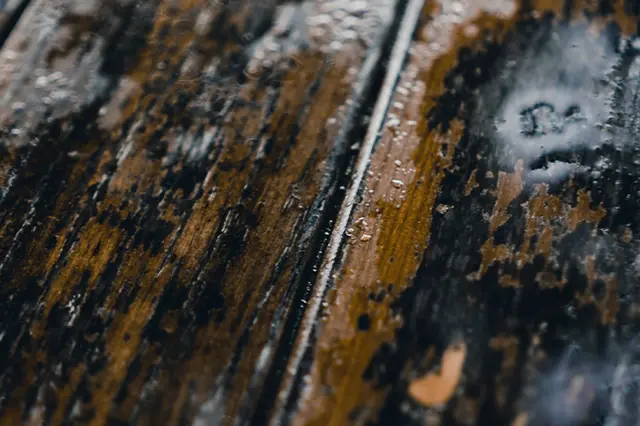Home Remediation: What You Need To Know
If you’ve been experiencing water damage in your home, you know that it can be a pretty frustrating ordeal. Not only is it inconvenient, but it can also be expensive to have to deal with the aftermath. If you’re looking for ways to prevent or minimize water damage in the future, read on for some helpful tips. In this article, we’ll discuss the different types of home remediation and what you need to know about them before making a decision.
What is home remediation?
Home remediation can involve the removal of any contaminants from your home, such as lead, asbestos, and harmful chemicals. It can also include the installation of air conditioning and heating systems that are safer for you and your family.
There are many different types of professionals who can help with home remediation. Some may specialize in one type of remediation, while others may be able to do a variety of tasks. You should always consult with a qualified professional to ensure that your home is cleaned properly and to find out what specific services are available.
Home remediation can often be a cost-effective way to improve your health and safety, and ensure that your home is in a safe condition.
Types of home remediation
The most common type of home remediation is to clean up environmental toxins that have built up over time. This can be done through the use of filters, air purifiers, and other methods.
Other types of home remediation include:
-Repairing water damage: This can be done by fixing leaks, restoring plumbing systems, and removing or repairing flooring and fixtures.
-Repairing mold: Mold can be removed using fungicides, cleaning agents, and dry ice.
-Removing pests: Pests can be eliminated by using extermination services or using natural methods, such as repelling insects with citronella oil.
-Reducing noise: Home improvements that reduce noise levels can be beneficial for people with anxiety or other conditions that make loud noises uncomfortable.
-Maintaining structural integrity: If a home is in danger of collapse, repairs may be necessary to maintain structural integrity.
-Improving energy efficiency: There are a variety of ways to improve energy efficiency in a home, such as installing insulation, upgrading windows and doors, and installing solar panels.
-Making improvements to accessibility: This can include renovating the exterior of the home so that it is easier to access, or making changes to the layout of the home so that it is more accessible for people with disabilities.
What should be included in a home remediation plan?
A home remediation plan should include the following:
-A preliminary estimate of the cost of the work
-An assessment of any environmental issues, such as asbestos, lead or radon
-The scope of work scheduled and estimated time it will take
-A list of contractors who will be performing the work
-An estimated completion date for each phase of the project
-A warranty or guarantee from the contractor that all work will be completed to your satisfaction
How much does home remediation cost?
Home remediation can cost anywhere from a few hundred dollars to tens of thousands of dollars, depending on the severity of the problem. Here are some factors that will affect the cost:
-The extent of the damage
-The type of remediation required
-The time and resources needed to complete the work
-The geographic location of the home
What are the benefits of home remediation?
There are many benefits to home remediation, including cleaner air and healthier homes. Here are five of the most important:
1. Home Remediation Can Improve Air Quality
When you remove toxins and harmful pollutants from your home, you improve air quality. This can reduce the amount of sick days you take each year, as well as help prevent respiratory problems in children.
2. Home Remediation Can Prevent Illness
Removing toxins and bacteria from your home can help prevent illnesses such as colds, flu, and bronchitis. When your home is healthy, it’s easier for you to resist getting sick.
3. Home Remediation Can Help Keep Your Home Cleaner
If your home is dirty, it’s harder to keep it clean. Dirty surfaces are more likely to accumulate bacteria and dust mites, which can cause asthma attacks and other respiratory problems in children. Cleaning products also leave a harsh smell and may damage surfaces over time. By removing toxins from your home yourself, you can keep it looking and smelling fresh all year long!
4. Home Remediation Can Save You Money on Cleaning Supplies
If you don’t have to buy cleaning supplies every time there’s a problem in your home, that money can be saved down the road. Plus, using safe cleaning products will never harm your health or cause any damage to your belongings – unlike some of the chemicals used in traditional cleaning.
5. Home Remediation Can Help You Live a Healthier Life
When your home is free of toxins and bacteria, it’s easier to take care of your health. This can prevent problems such as autoimmune diseases, respiratory infections, and even cancer. If you or someone you love suffers from any of these conditions, home remediation may be the solution you’ve been searching for.
Conclusion
Home remediation can be a scary process, but it doesn’t have to be. You don’t need to be a demolition expert or have an outrageous budget – in fact, most of the work can be done by someone with a little bit of common sense and some basic tools. By following our tips, you’ll be on your way to fixing your home’s problems in no time.

